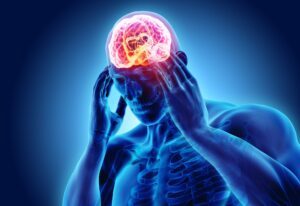Chronic pain is a pervasive issue affecting millions worldwide. It can stem from various conditions, including arthritis, fibromyalgia, and nerve damage. While the physical aspects of chronic pain are often emphasized, its impact on mental health is equally significant. Chronic pain frequently leads to depression, anxiety, and other mental health disorders. Understanding this connection is crucial for developing effective treatment plans.
The relationship between chronic pain and mental health is bidirectional. Chronic pain can cause significant emotional distress, leading to conditions like depression and anxiety. Conversely, existing mental health issues can exacerbate the perception and intensity of chronic pain. This interconnectedness necessitates a comprehensive approach to treatment that addresses both physical and mental health aspects.
Chronic pain often leads to a reduced quality of life. Individuals may experience limitations in daily activities, social interactions, and employment. These limitations can contribute to feelings of frustration, helplessness, and social isolation, further impacting mental health. Recognizing and addressing these challenges is essential for holistic healing.
The Psychological Impact of Chronic Pain
Chronic pain can take a severe toll on mental health. Persistent pain signals in the body can lead to chronic stress, which, in turn, affects the brain’s functioning and chemistry. This prolonged stress can cause or exacerbate mental health conditions, such as depression and anxiety.
Depression is common among individuals with chronic pain. The constant discomfort and limitations imposed by chronic pain can lead to feelings of sadness, hopelessness, and a loss of interest in activities once enjoyed. These depressive symptoms can, in turn, amplify the perception of pain, creating a vicious cycle that is challenging to break.
Anxiety is another frequent companion of chronic pain. The unpredictability of pain episodes can cause constant worry and fear. This anxiety can manifest as physical symptoms, such as increased heart rate and muscle tension, which can further intensify the pain experience. Addressing anxiety is crucial in managing chronic pain effectively.
Chronic pain can also lead to sleep disturbances. Pain can make it difficult to fall asleep or stay asleep, leading to chronic sleep deprivation. Lack of sleep can worsen pain perception and negatively affect mood and cognitive function. Improving sleep quality is an important component of managing both chronic pain and mental health.
Integrated Treatment Approaches
Given the intricate connection between chronic pain and mental health, integrated treatment approaches are essential. These approaches combine physical and psychological therapies to address both aspects simultaneously, offering a more comprehensive path to healing.
One effective method is cognitive-behavioral therapy (CBT). CBT helps individuals change negative thought patterns and behaviors associated with chronic pain. It teaches coping strategies, stress management techniques, and ways to improve mood and functionality. CBT has been shown to reduce pain intensity and improve mental health outcomes.
Mindfulness-based stress reduction (MBSR) is another valuable approach. MBSR involves mindfulness meditation and yoga practices that help individuals focus on the present moment. This practice can reduce pain perception, improve emotional regulation, and enhance overall well-being. MBSR has proven beneficial for those with chronic pain and coexisting mental health conditions.
Medication management is often a component of integrated treatment plans. Antidepressants and anti-anxiety medications can help manage mental health symptoms. Pain medications, including nonsteroidal anti-inflammatory drugs (NSAIDs), opioids, and muscle relaxants, can be used to address physical pain. It is important to use these medications under the supervision of a healthcare professional to avoid dependency and side effects.
Physical therapy is another crucial aspect of integrated treatment. Physical therapists can design exercise programs that improve strength, flexibility, and pain management. Regular physical activity has been shown to reduce pain, improve mood, and enhance overall quality of life. Engaging in physical therapy can be particularly beneficial for those with chronic pain conditions like arthritis and fibromyalgia.
The Role of Support Systems in Healing
Support systems play a vital role in managing chronic pain and mental health. Family, friends, and support groups provide emotional and practical assistance, helping individuals cope with their condition. These support networks can offer encouragement, reduce feelings of isolation, and provide valuable insights into managing chronic pain.
Participating in support groups can be particularly beneficial. These groups connect individuals with similar experiences, fostering a sense of community and understanding. Sharing experiences and coping strategies can provide new perspectives and reduce feelings of isolation. Support groups can also offer a platform for discussing treatment options and finding additional resources.
Professional support is equally important. Healthcare providers, including doctors, therapists, and counselors, offer expertise and guidance in managing chronic pain and mental health. Regular consultations with these professionals ensure that treatment plans are effective and adjustments are made as needed. Seeking professional help is a crucial step in achieving holistic healing.
Overcare psychiatry offers comprehensive mental health services tailored to the needs of individuals with chronic pain. By combining psychiatric expertise with a deep understanding of chronic pain management, Overcare Psychiatry provides integrated treatment plans that address both physical and mental health aspects. Their approach emphasizes personalized care, ensuring that each individual’s unique needs are met effectively.
Lifestyle Changes for Pain
Incorporating lifestyle changes can significantly improve chronic pain and mental health outcomes. These changes focus on enhancing overall well-being and reducing pain perception through various healthy practices.
Regular physical activity is essential. Exercise releases endorphins, which are natural pain relievers and mood enhancers. Activities such as walking, swimming, and yoga can improve strength, flexibility, and overall fitness. It is important to choose activities that are enjoyable and sustainable to maintain motivation and consistency.
Diet also plays a crucial role in managing chronic pain and mental health. A balanced diet rich in fruits, vegetables, whole grains, and lean proteins provides the necessary nutrients for overall health. Certain foods, such as those high in omega-3 fatty acids, have anti-inflammatory properties that can help reduce pain. Staying hydrated and avoiding excessive caffeine and alcohol intake is also important.
Sleep hygiene is another critical aspect. Establishing a regular sleep routine, creating a comfortable sleep environment, and avoiding stimulants before bedtime can improve sleep quality. Adequate sleep is essential for pain management, emotional regulation, and cognitive function.
Stress management techniques are vital for managing both chronic pain and mental health. Practices such as deep breathing, progressive muscle relaxation, and mindfulness meditation can reduce stress and improve emotional well-being. Finding activities that promote relaxation and joy, such as hobbies and spending time with loved ones, can also enhance quality of life.
Future of Treatment
Advancements in medical research and technology continue to improve the understanding and treatment of chronic pain and mental health. Emerging therapies and innovations hold promise for more effective and personalized treatment options.
One promising area is the use of virtual reality (VR) in pain management. VR can distract individuals from pain by immersing them in engaging virtual environments. This technology has been shown to reduce pain perception and improve mood. VR can be particularly useful for individuals with chronic pain conditions that limit physical activity.
Neurofeedback is another innovative approach. This technique involves monitoring brain activity and providing real-time feedback to help individuals regulate their brain function. Neurofeedback has shown potential in reducing pain and improving mental health outcomes. It offers a non-invasive and drug-free option for managing chronic pain and mental health conditions.
Genetic research is also contributing to personalized treatment plans. Understanding an individual’s genetic makeup can help identify the most effective medications and therapies for managing chronic pain and mental health. This personalized approach can improve treatment outcomes and reduce the risk of adverse effects.
Telehealth has become increasingly important in providing accessible care. Virtual consultations allow individuals to receive professional support from the comfort of their homes. This is especially beneficial for those with mobility issues or those living in remote areas. Telehealth can facilitate regular follow-ups and ensure continuity of care.
Dual Approach Healing
Managing chronic pain and mental health requires a dual approach that addresses both physical and psychological aspects. Understanding the connection between chronic pain and mental health is crucial for effective treatment. Integrated approaches, including cognitive-behavioral therapy, mindfulness-based stress reduction, medication management, and physical therapy, offer comprehensive care. Support systems and professional guidance play vital roles in the healing process.
Incorporating lifestyle changes, such as regular physical activity, a balanced diet, proper sleep hygiene, and stress management techniques, can significantly improve outcomes. Advances in medical research and technology continue to enhance treatment options, offering hope for more personalized and effective care.
Ultimately, a holistic approach that considers the interconnectedness of chronic pain and mental health can lead to better outcomes and a higher quality of life. Embracing this approach with patience, perseverance, and professional support can pave the way to healing and well-being.




